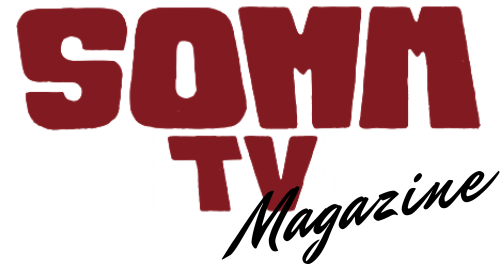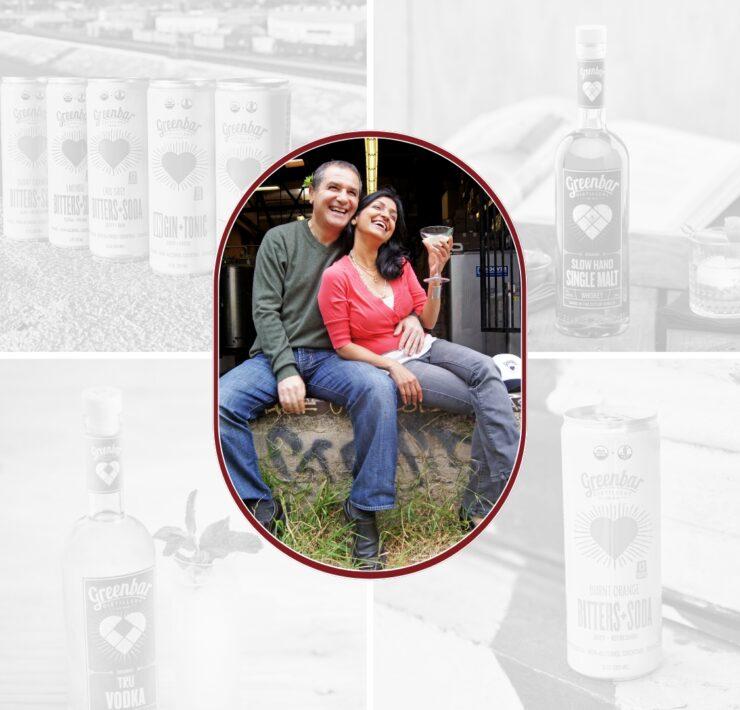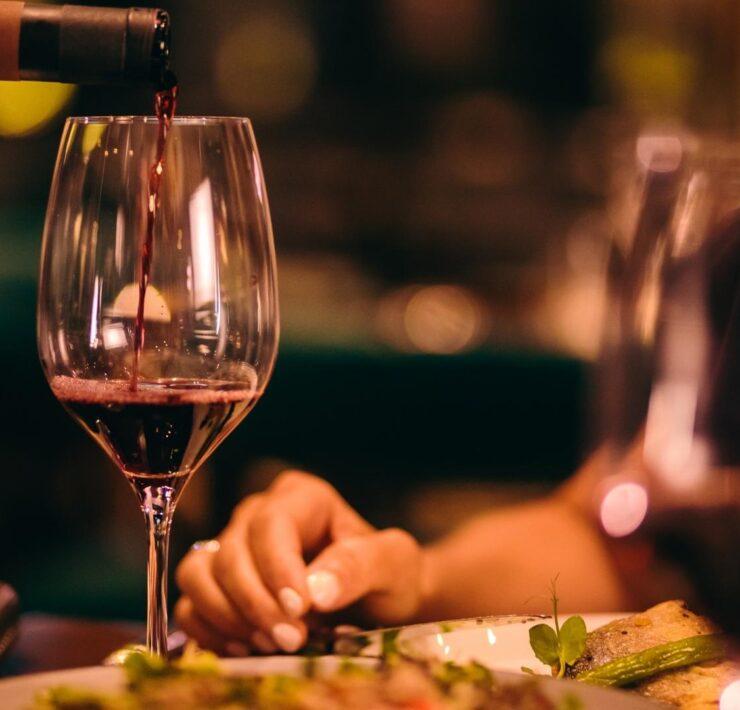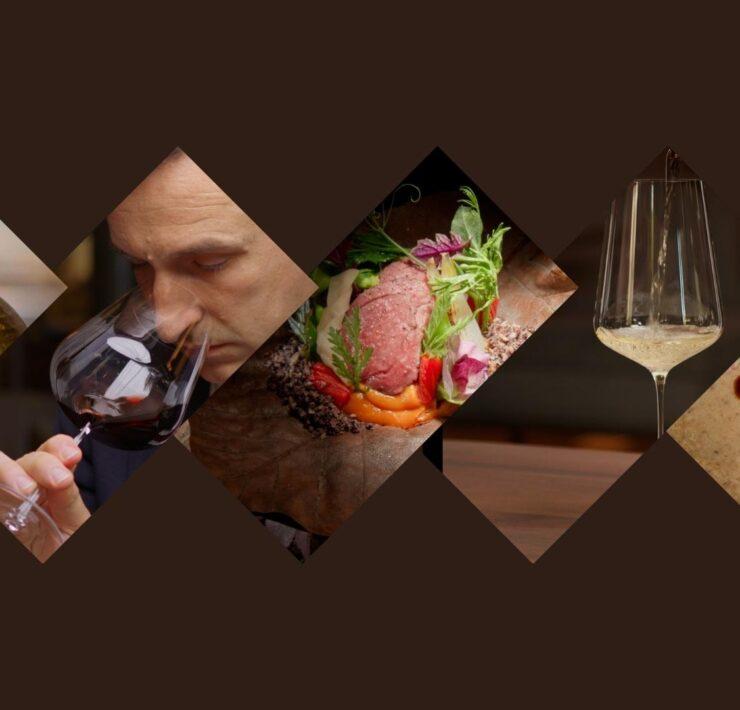In the bustling New York City culinary landscape, where innovation and authenticity intertwine, Pinch Chinese has emerged as a leader of contemporary Chinese cuisine. At the heart of this gem is an individual whose passion and expertise elevate the wining and dining experience. Meet Miguel de Leon, the restaurant’s wine director, who implements uncompromising standards for the wine program.
Miguel de Leon has become a beacon among oenophiles over the last few years as a vocal representative of the BIPOC and LGBTIQA+ communities. His commitment to diversity and representation extends to wines poured at Pinch by giving space to producers with a clear ethical declaration.
At Pinch Chinese, Miguel de Leon’s dedication to distinction shines with a 350-bottle list, 20 of which are poured by the glass. His meticulously curated wine selection allows wine aficionados to savor the complex nuances of Chinese cuisine paired with wines of exceptional ideals.
Below, Miguel shares his journey, beginning with a passion for sake, reaching peak burnout at an NYC institution, leading to Michelin and James Beard Awards.
Note: This interview has been edited for clarity and length.
Nicole MacKay: So let’s start with young Miguel. At what stage did wine enter your life?
Miguel de Leon: I was in college trying to pay for it. When I got there, my family said, “Go pay for everything because you’re a grown-up.” And the easiest way to do that was to get a restaurant job.
I was fortunate that my first restaurant job was at Chez Panisse. That was a neat education because Jonathan Waters was the wine director at the time. He was the person to show me what you could do with just being smart and thoughtful about something that seemed so mundane as a wine list. It was interesting how he would frame products on the menu. The way he spoke about it, he spoke about people with care and how those things improve the experience. So I’ve always come at wine asking how can it be an additive to an experience as opposed to it being the star of the show.
NM: Is that when you decided that wine was was going to be a part of your trajectory?
MdL: No, I just knew that I was good at restaurants. I was good at being in them; it felt like an educational experience the whole time. I was getting my master’s, so it was an added challenge of knowing things that no one else does. Or, the esoteric bit of it. I’m a trivia person, I love that kind of stuff, and wine allows itself to be encapsulated in a trivia-like world. For instance, knowing the crus of Burgundy and knowing them in another language because I was a linguistics major, it was fascinating. So, all of those together, they felt like a fun little bonus. I didn’t take wine seriously until about 12 or 13 years ago.
NM: What took you to the East Coast?
MdL: My partner moved out here about a year and a half before I did, and they were opening a bar in Brooklyn. I said, “All right, I guess I’ll go help out,” but then they were doing great by the time I got here.
I had a letter of recommendation from Alice Waters (founder of Chez Panisse), and I could basically work at any restaurant I wanted. So I worked at Per Se during my first year-ish living in New York. I had no soul, but I earned a lot of money. And I had no social life because it was the restaurant or nothing. That was not healthy for me. I went away from the three-piece suit life into the complete opposite, like, the punk rock version of restaurants.
I started working for David Chang at Momofuku. That was the first time I remember challenging people with wine. Not in a confrontational way; instead, in more of a conversational way.
I remember one of the pairings for a crab dish was a can of Bud Light. Literally, one can of Bud Light. People would say, “We’re paying X amount of dollars for this. Why is this it?” We explained because it’s nostalgic, and so on. It starts to challenge convention. What I took away from that place was that you could maximize deliciousness if you obliterate the context, which was fun for a little bit.
During my time at Momofuku, I was getting sake certifications, and that’s where the bug bit. And so I came to wine from the sake world. With sake, some have regulations and rules about putting chemicals or additives in their sake, whether or not it’s water or alcohol or anything for adjustment. I saw a very clear parallel to that with natural wine.
One of the last lists I did for Momofuku was one entirely of Jura wine, which was a little bit of a f*** you to everyone else. But it established our forward-thinking, ensuring it was something people discussed. I take much of that stamp-making forward-thinking sensibility from Momofuku in tandem with how Jonno (Jonathan Waters) used to talk about his wines with compassion to create my wine lists now.
But during all this, if you’re empire-building, you’re also burning yourself out. So really, it was a story of burnout until my late twenties, when I realized if I kept doing this, I would ruin myself. I would come home broken because of the pressure we were under. So, I left to work and consult at a few other places before landing at Casa Mono for a few years.
In 2016, I wasn’t thinking about leaving Caso Mono, but an opportunity arose to create a wine list for a Chinese-style tapas place. Initially, their concept was to have 40 beers, a cocktail program, and maybe 12 wines. And I said, “Let’s reverse it. Let’s flip that on its head and make it so that it’s a wine place.”
I explained people go to a Chinese restaurant, bring a bunch of friends, and whatever wine they want to drink. I wanted to eliminate decisions and have all the fun wine I would want to drink while eating the kind of food there.
NM: Was there any resistance to that?
MdL: No, because I don’t think they knew what I had up my sleeve when they said yes. We started with 88 bottles on the wine program, and they said, “This is a lot,” and I was like, “This is nothing.” It was a small list; I could fit it all on one page if I wanted to. But if we’re going to do this, we’re going to do it right. And they said, “All right, let’s go for it.” So now we’re at 350, with about 20 always available by the glass.
NM: So if you could describe Pinch and its wine list to somebody that might not know its premise, what does that sound like?
MdL: I’ll tell you it’s evolved. In the beginning, it was all connections to the Silk Road. So how do we make the flavors of the food sing in the flavors in the wine? We ended our route in Venice in the Veneto. Northern Italy was the end point of our wine list, and further west only if they had direct influences to Italy. So I did my history; anything that bordered the Venetian Republic, we really carved into it. We had a lot of Georgian and Eastern European wine, anything with direct links or ties to China, from Xinjiang on — you head west and get into the storied and mythical, the birthplace of wine country. So, we wanted to double down on stuff like that and showcase some regional products.
But now it’s an eclectic international wine list focusing primarily on low or minimal intervention and as close or organic as possible, if not beyond. Many of our producers are biodynamic and have a clear sense of ethical representation. So for us, that means we do a lot of our vetting on the distribution rep sale side.
We will only touch it if we find good moral practices regarding labor or fair use of land regeneration. And it’s because I want people to consider wine as a bigger vehicle. Our decisions have more consequences than what makes a good food and wine pairing. How do we make that AAA conscionable, defensible choice every time we say yes to something that goes on our wine list? With us, it begins with our conversations with sales reps and distributors.
The second bit is asking if there is anything they’re contributing to their community that we can help amplify. The way that we’re doing that would be supporting a winemaker and buying one of their cuvées in perpetuity. We’re helping the small black-owned biodynamic farmed producer out in California, for example. And it sounds like nothing when we say I’ll buy all 65 cases. But to them, that’s life-changing money. To emphasize this idea that wine is about relationships and human connection. And I’m going to do my darnedest to find delicious wines that also do really good — with a capital G — things for people.
NM: Are you finding those types of producers easier to come by? Or are people breaking down your door to get on your list?
It depends. It used to be that people would be like, “Oh, you have a wine list; here’s what we have to offer.” But now, when reps come in, they know how exacting our palates are. There are four of us on the sommelier team right now, and if one of us doesn’t like a wine, it will not make it on the wine list. It has to be unanimous. The wine has to be so sound. And I mean that in more than just a technical sensibility of correctness. We’re asking, “Who does this wine serve? Who are we talking to when this gets made? Why are you making this?” If the rep can’t answer those questions, that bottle has no place in our restaurant. It’s easier to have a group of like-minded individuals looking for producers the same way that I am.
What I wish for more is to have a much clearer story on the American front. I can’t find enough American wine to champion. Many people making wine are doing it right. But there are limits because of our policies — and not just the three-tier system — interstate and alcohol regulation in this country is so backward.
The biggest challenge is that I want to talk to people who are making wine in, say, Colorado, Texas, Utah, and Montana. I know they’re out there. But I can’t get their product here because of old convoluted ways of thinking about alcohol as a product.
This is how I tie everything back to the idea that a wine list can say something. How can my wine list talk about gun violence in this country? Let’s look at alcohol. It was regulated to death 100 years ago, and look where we’re at now. You have to be 21 to drink it. Even though it’s ok within culture, right? If your family has been drinking wine, you probably tasted wine when you were a child. If we have social impetus to say this is a danger to us, or if we, as professionals, can say that we are dealing with something that kills people, albeit slowly, we can talk about the same thing with gun violence and policy.
There is an equity issue here that we’re not addressing that wine can do. But that’s why I want to bring it back. This thing occupies so many lanes that sometimes we’re skittish to make the connection when it’s right there in front of us.
NM: Is there a path out of all this convoluted red tape?
MdL: When we acknowledge that the mafia still exists and I have to warehouse my wine in New Jersey to get it into New York. That’s one thing. We also need to have a policy age out. The people making regulations and policies about alcohol need to come from inside the industry and not from people who have lobbied interests. I’m going to get really political here. We also need to understand there isn’t an end-all deal for alcohol. Money plays a significant role in all of this.
But at the same time, what are we championing on our wine list, my friends? These people are artisans, right? They’re trying to maintain traditions that otherwise would be lost. We’re saying organic could work, or we can preserve where black people can farm when their ancestors used to be sharecroppers, but now they can’t afford the land they’re staying on. There are ways that we can address this directly as a group of people.
I’d rather appeal to somebody with a bleeding heart sensibility, who’s got money, who can maybe do something about it and talk about it with chops or understanding. They don’t know what it is that they need to be talking to people about. And much of it stems from this idea that wine gets to you one way, liquor gets to you differently, and non-alcoholic beverages get to you even more convolutedly. But they all come from agriculture. And until we have people who are intrinsically linked in all these places where wine, land management, labor management, land use, all that stuff — I haven’t even mentioned anything about social equity or justice. We need people from the inside to do this. Not just people who think we have to prioritize corn and soy every f***ing vintage.
NM: You mention social equity and justice, which is a topic I was hoping we could touch on. Because outside of your work at Pinch, you’re very vocal about diversity and inclusion and trying to ensure underrepresented voices are heard. When did you start actively listening to your inner voice that made you want to be a more prominent advocate in the industry?
I can pinpoint it exactly. It was 2013-14, and I was well into working at Casa Mono. I reconnected with Patrick Cappiello, who now makes wine in California but used to recruit people for the annual La Paulée event.
I jokingly asked if I was a diversity hire. Thankfully, he was honest with me and said, “I think you kind of are. But you have to look at this room to see why you need to be there.” I accepted that and went into La Paulée for a couple of years…where nobody looked like me.
First, I guess my fashion was also a little too much. Everyone else was wearing black and blue suits, and I was walking up in an emerald green blazer. I stood out like a sore thumb.
But at the same time, when you stick out, it’s a magnet for others who stick out, too, right? And I was like, “Ok, if I can do this for us, maybe there’s a reason why I am here.” But in the end, it didn’t feel right. I was there just to be there and not further the cause for myself. I was furthering the cause of La Paulée, and it didn’t give me any satisfaction or sense of community.
It took a little bit for that to click, and then some people in my circle started to get invited again, and I said, “Just be careful about what you’re doing here because I felt this, that, and the other, you know. Maybe don’t do this to yourself for self-preservation, right?”
But it kept happening, and then I talked about it in the article I wrote in 2020 when it really came to a head. People played the “Do you know who I am?” card. And then I felt like I got physically assaulted at the end. I don’t talk about that either. But you know, that was the end of it. And thankfully, it was also the week before COVID. So I put that chapter of my life away. I still haven’t gotten an apology or anything from that organization. You can print that, whatever. I don’t give a sh**.
I wish people understood that when they walk into those kinds of spaces, they expect what it is that you can do. And if there’s no such thing as active mentorship or a willingness for the group to say why it’s important, then you’re just doing it to do it. And that brings us nowhere.
So I want people to understand that if you engage the community, be purposeful. Ask why it is important to see Black people in your space. Many spaces don’t ask that, you know, talk to the Court (of Master Sommeliers) or WSET. A lot of the time, if you can pay, you can play, and that kind of legitimacy with access is really dangerous.
NM: Your hard work and viewpoints are resonating because you’ve earned a couple of massive accreditations, the Michelin Sommelier of the Year Award NYC 2021 and the James Foundation Award. How do you accept those things as part of your identity now? Or do you suffer from impostor syndrome?
I mean, having a good therapist number, I guess. At first, it felt like there was a catch, and I asked myself, what was happening? And why are they doing this? After some time, I acknowledged there wasn’t one, and it really solidified things.
The Michelin came out of nowhere; we weren’t expecting it. They sent an email that said, “Hey, can you fill out this blurb?” So I did, thinking they were doing a song piece or something. And the next thing I knew, that’s the piece they used to profile me. I was busy running a restaurant in the middle of a pandemic. I was shocked to receive the award but also grateful because I was the only brown person in the cohort of other winners from DC, Chicago, New York, and California.
But the James Beard Award meant more to me. It was after the pandemic. It was two years of writing that they were combing over, and the shortlist was insane. At first, I was honored to be nominated, particularly among people I consider my heroes. Like, Tony Tipton Martin was the woman who gave me my award. All I could think was that she was part of why I wanted to write this way, talking as a person in this space. That’s what I want to do, to be that person who helps people find that for them.
I was walking around and wearing my medal at the end of it, and she said, “Congratulations.” I said, “I just want to say you’re one of the reasons I’m writing.” And this iconic woman, no beats missed, goes, “Well, honey, let’s take a picture. It’ll last forever.” I was like, oh my God. If I can have that kind of confidence, talking about this stuff to other people, then I don’t know where we’d be. We’re talking about a really different game that felt so badass to me. Talk about meeting a f***ing superstar.
I felt my heart racing when that happened because I also feel it’s the most impactful thing I’ve done so far. If I’m honest, here’s my experience of what it is to be a wine person. But also a wine person carrying all this baggage, being the kind of person I am. So how do we fix that? How do I fit into this? And, you know, luckily, like people were responsive to hearing that.







